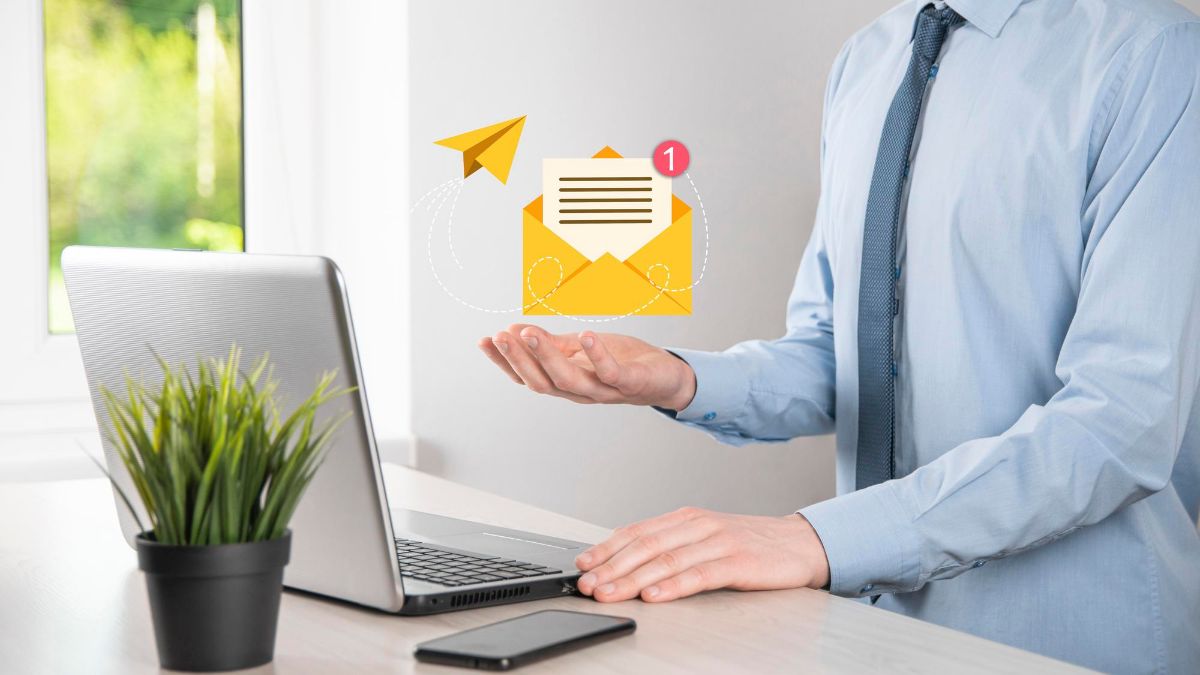
With cyber threats becoming increasingly sophisticated, businesses need to take extra measures to protect their sensitive data. Encrypted emails, for instance, can help ensure that your confidential information stays private and secure from prying eyes.
We will explore here the benefits of using encrypted email for businesses and why it’s essential in today’s digital age. So buckle up and get ready to discover a safer way for your business communication!
Introduction to Encrypted Email
Email has been a staple communication tool for businesses since the internet became widely used in the workplace. However, email is not a secure platform by default. Unencrypted email can be intercepted and read by anyone with access to the network it travels through. This type of data breach can have serious consequences for businesses, including loss of customer trust and reputation damage.
Encrypted email addresses this security issue by scrambling the message content so that it can only be read by the intended recipient. Should anyone intercept the message then they should not be able to make any sense of it without the encryption key.
Businesses should carefully evaluate their needs before selecting a solution. Typical factors to consider might include ease of use, compatibility with existing systems, and cost to the budget.
Encrypted email is a valuable tool for businesses that need to protect their communications from potential eavesdropping. It can help prevent data breaches and safeguard customer information.
Why Should Businesses Use Encrypted Email?
There are many benefits of using encrypted email for businesses. Perhaps the most important benefit is that it helps to protect sensitive information from being intercepted and read by unauthorized individuals. Email messages sent in plain text can be easily read by anyone with access to the network. Whereas, when email messages are encrypted, they can only be read by individuals with the correct encryption key. This ensures that only authorized individuals can access the information contained in the message.
An additional benefit of using encrypted email is that it can help to prevent data breaches because a hacker would be much less likely to be able to read any of the messages stored on the server. This could potentially prevent a hacker from gaining access to sensitive customer information or other types of confidential data.
Encrypted email can also help businesses to comply with data privacy regulations like the General Data Protection Regulation (GDPR). The GDPR requires businesses to take steps to protect the personal data of EU citizens from unauthorized access and disclosure. Encrypting email messages is one way that businesses can help to meet this requirement.
There are many good reasons for businesses to use encrypted email. Encrypted email can help to protect sensitive information, prevent data breaches, and comply with data privacy regulations.
How Does Encrypted Email Work?
An encrypted email solution will send messages through a secure server that then encrypts them before they are sent. This prevents anyone from being able to read the message except for the intended recipient. This approach represents a great way to keep your communications private and secure and is especially important for businesses that need to protect sensitive information.
The Risks of Not Using Encrypted Email
Encryption is key to keeping your messages safe from prying eyes. Without it, your emails would be vulnerable to interception and snooping. This could lead to the disclosure of sensitive information. Encrypted email helps protect your privacy and keep your communications confidential. Here are some risks of not using encrypted email:
Your emails could be intercepted and read by anyone who has access to your network. This includes your ISP, government agencies, and malicious hackers.
If your emails are not encrypted, they could be read by automated systems that scan for keywords or other data. This includes spam filters and analytics tools.
Your unencrypted emails could be released to the public if your account is hacked or if you use an insecure email service. This could jeopardize your privacy and reputation.
If you communicate with people who use encrypted email, your messages will be less secure if you don’t encrypt them as well. This is because encrypted email uses shared keys that can be used to decrypt messages sent between parties.
Steps for Implementing an Encryption Strategy
There are a few different ways to encrypt your email, and the best method for your business will depend on your needs and resources. Below are some steps for implementing an encryption strategy:
- Evaluate your needs: What kind of data are you sending via email? How sensitive is this information? Do you need to comply with any industry regulations? The answers to these questions will allow you to determine what level of security you require.
- Select an encryption method: There are various methods used, so you’ll need to choose which one is more tailored to your business. Some common options include Pretty Good Privacy (PGP), Transport Layer Security (TLS), and Secure/Multipurpose Internet Mail Extensions (S/MIME).
- Obtain the correct software: Once you’ve chosen an encryption method, you’ll need to find software that supports it. Microsoft Outlook and Apple Mail have built-in support for some types of encryption. For other methods, you may need to install a plugin or separate application.
Conclusion
As businesses continue to move their operations online, the importance of secure communication becomes increasingly evident. Encrypted emails are an effective and reliable way to ensure private information is secured from hackers and other malicious actors. With its powerful encryption capabilities, encrypted email can provide peace of mind for businesses who want to make sure their data remains safe. Furthermore, it can help enhance customer loyalty by showing them that you take their security seriously.




